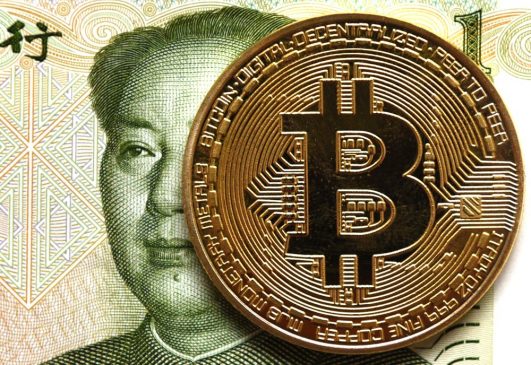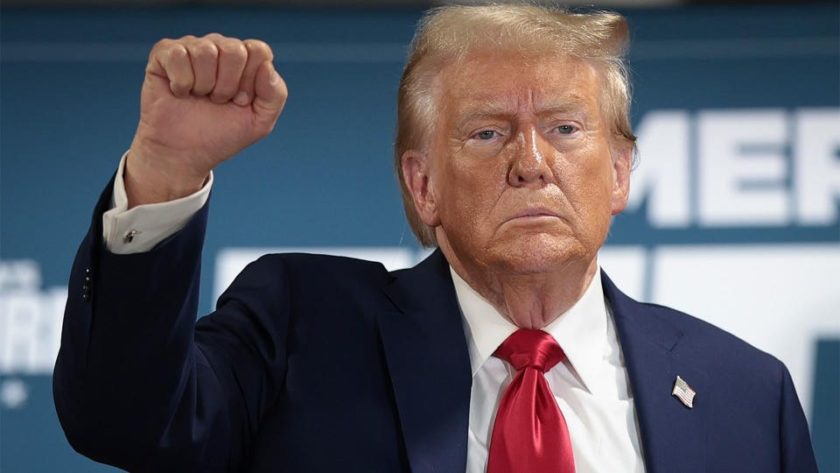According to CNLedger, a recognized source of China-related cryptocurrency news, the Chinese over-the-counter (OTC) market has revealed strong buys as of late, indicating an overall rise in demand for bitcoin.
1/ Chinese markets reveal strong buys. OTC (Over-The-Counter) trades, the almost only way to buy bitcoin with fiat in China, showing considerable $ premium (1 USDT = 7 CNY) over the official rate of 1 USD = 6.7 CNY. pic.twitter.com/bd0n0DGFVU
— cnLedger (@cnLedger) April 8, 2019
After the Chinese government banned bitcoin and cryptocurrency trading in September 2017, local publications including SCMP have reported that a relatively large number of bitcoin investors still actively traded the asset, circumventing restrictions through VPNs, stablecoins, and OTC markets.
High Demand For Bitcoin From Chinese Investors Shown by Stablecoin Premium
Based on official rates, currently, 1 USD is worth around 6.72 Chinese yuan (CNY).
On over-the-counter (OTC) trading platforms and Asia-based exchanges like Huobi, however, 1 USDT is being traded at around 7 CNY, with a 4 percent premium.
In China, due to the blanket ban imposed on cryptocurrency trading, the sole way for investors to buy or sell cryptocurrencies is either through peer-to-peer (P2P) or over-the-counter (OTC) markets.
Once investors acquire bitcoin or USDT through an OTC exchange, then investors can use VPN to trade on global cryptocurrency exchanges, engaging in crypto-to-crypto trades.
The rise in the stablecoin premium suggests that the demand for cryptocurrencies, in general, is overwhelming enough to push the rates up.
Why are Investors Suddenly Interested in Crypto in China?
According to an analyst known as “Light,” the offshore functionality of cryptocurrencies like bitcoin, or essentially the store of value characteristic of bitcoin, is likely appealing to investors once again.
Many major countries in Asia in the likes of China, South Korea, Malaysia, and others have strict capital controls in place; it is difficult for investors to take large sums of money outside of the country without necessary approvals and rigorous verification.
However, bitcoin eases the process of transferring value to overseas markets, which a very few financial instruments can provide.
The analyst said:
We are witnessing a resurgence in Chinese demand for cryptocurrencies. This trend in the making comes after more than a year of relative quiet, a reminder of the time when Chinese volumes were king.
For a variety of reasons not least of which are the volatility and offshore functionality, cryptocurrencies had taken hold of the Chinese investing public’s imagination. In late 2016, more than 90% of bitcoin volumes were paired against the Yuan.
Will it Drive the Price of Bitcoin Up?
As reported by Bitwise Asset Management, most of the global bitcoin volume is centered in the U.S., specifically in the futures market, a statistic that was unexpected by many.
About 35 percent of the global bitcoin volume is said to be processed by CME and CBOE futures markets, making the U.S. the single biggest market for bitcoin trading.
A report from Bitwise read:
“And, when you remove fake volume, CME and CBOE futures volume is significant ($91M), especially compared to the real spot volume (35% for Feb 2019). This is good news because it means CME— a regulated, surveilled market— is of material size, which important for an ETF,”
Realistically, the increase in strong buys of bitcoin in China is unlikely to act as a catalyst that pushes the price of the asset forward in the near-term.
But, it demonstrates that the demand for and interest in cryptocurrencies as an asset class in a region with strict restrictions in place are noticeably rising.
If investors are able to circumvent the restrictions on cryptocurrency trading, it could also leave Chinese officials to rethink about their approach towards cryptocurrency regulation.
It is significantly more difficult to control a market with a blanket ban than with strict regulations in place because for an asset class like cryptocurrencies, there are many methods individual investors can utilize to continue trading.
Precisely for that reason, despite reports speculating the South Korean government had planned to ban cryptocurrency trading in early 2018, the authorities took the approach of strict regulation.




